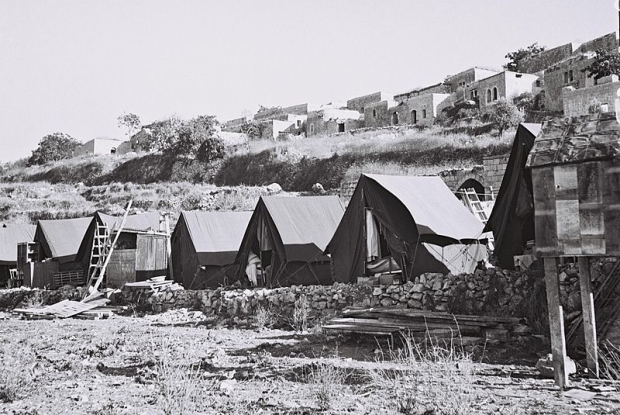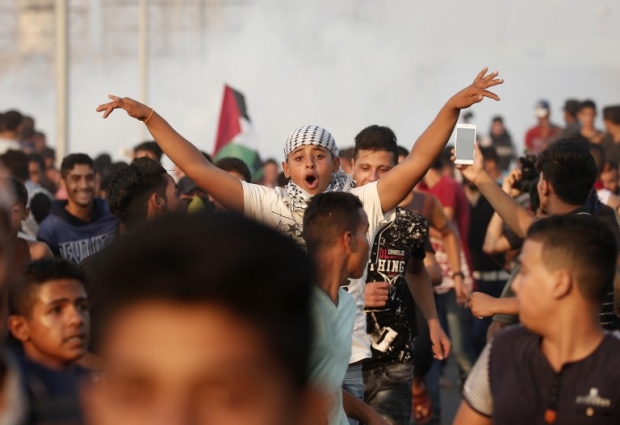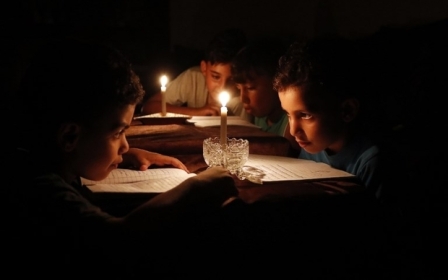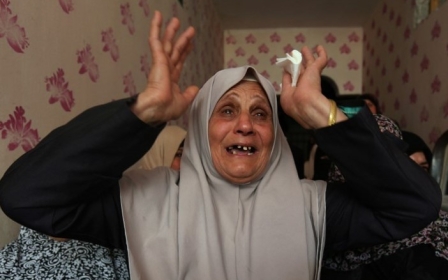The US assault on Palestinians mirrors its assault on native Americans
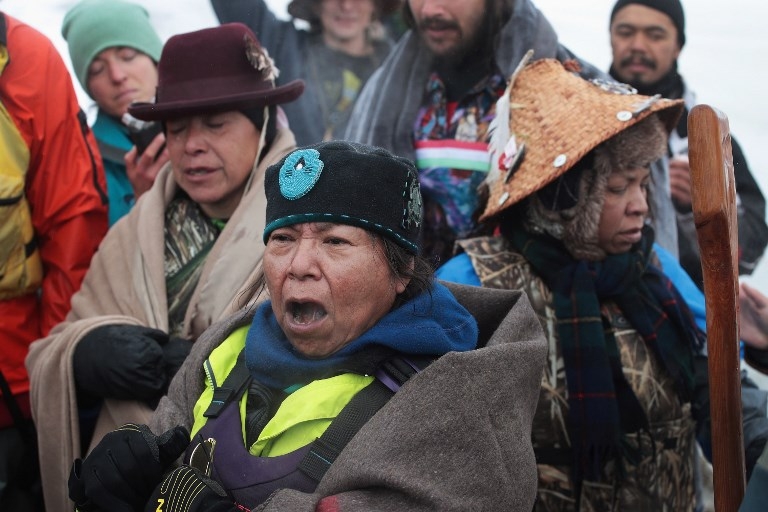
As a member of the Palestinian refugee diaspora in Lebanon, I hold a pass that identifies me as a stateless refugee legally registered with UNRWA, the UN agency for Palestinian refugees. This document is crucial when entering or exiting any refugee camp, as it allows the host state to identify me as a Palestinian refugee.
The United States has slashed funding for the agency and is attempting to change the definition of refugee status, two of many such actions contributing to the deepening crisis faced by Palestinian people. These assaults make an understanding of the roots of this aid organisation important.
Refugee reservations
As a child, I remember my grandfather explaining that when the family was ethnically cleansed from the village of Suhmata in 1948, tents were already standing in preparation for the exiled Palestinians upon their arrival in neighbouring countries - in our case, Lebanon.
Various areas were “reserved” for these Palestinians, with a goal to create a permanent exile, but guilt-managed through the illusion of the right of return.
This suggests that Palestinians are permanently in exile, since the place to which they would return no longer exists. Refugee camps are essentially reservations, with social services provided to Palestinians as their indigeneity is erased.
Seeing UNRWA from the indigenous perspective, it would be more accurate to name it the United Nations Reservation Works Agency, as 70 years of exile have brought no relief to Palestinians
The camps are considered de facto autonomous regions for Palestinians, who are marginalised politically, socially and economically in relation to the host country. UNRWA provides their economic livelihood; thus, cutting that funding is a clear political assault on the exiled nation’s survival.
Looking at the indigenous peoples of the US, the same pattern is evident. The US Bureau of Indian Affairs and related agencies serve as the UNRWA for native Americans, providing services such as healthcare and education.
Making way for settler-colonialists
As with Palestinians, the Trump administration has sought to cut hundreds of millions of dollars from services for indigenous Americans without regard for their treaty rights.
Also similar to the situation of Palestinians, reservation areas were created with a goal to eject indigenous peoples from their original lands and make way for a settler-colonial regime.
The US officially created reservations in 1851 through the Indian Appropriations Act, which not only forced the native population to be relocated, but also severely limited their traditional livelihoods of hunting, gathering, fishing and farming. Some were given food rations, introducing grease and sugar into their diets.
Similar problems exist in Canada’s relationship with its indigenous peoples. Reservations in Canada were created through the Indian Act of 1876, which regulates social services for those living on reservations. Like Palestinian refugees, native Canadians hold a status card that identifies them as indigenous, as per the Canadian government’s definition.
The destruction of memory
Reservations in Canada are typically controlled by a band council, and for a period of time, indigenous peoples saw their freedom of movement controlled by a pass system. Today, native Canadians continue to receive state welfare, with no real opportunity for self-determination or a resolution to land disputes.
Seeing UNRWA from the indigenous perspective, it would be more accurate to name it the United Nations Reservation Works Agency, as 70 years of exile have brought no relief to Palestinians.
Like indigenous North Americans, Palestinians have two options: to remain a permanently dependent, exiled nation with no right of return aspirations, or to assimilate into the social fabric of wherever they currently reside - thereby culturally and legally evaporating as a nation, and giving in to the process of memoricide, the destruction of their past and memory.
- Ahmad Moussa is a human rights scholar and activist and a regular contributor and freelance writer for various international news agencies. He is a scholar of indigenous and Middle Eastern issues. He is also a human rights activist with a master of arts in international law and human rights. Moussa is currently involved in research for a doctoral degree in war studies.
The views expressed in this article belong to the author and do not necessarily reflect the editorial policy of Middle East Eye.
Photo: Native American activists are pictured on 1 December 2016 outside Cannon Ball, North Dakota (AFP)
New MEE newsletter: Jerusalem Dispatch
Sign up to get the latest insights and analysis on Israel-Palestine, alongside Turkey Unpacked and other MEE newsletters
Middle East Eye delivers independent and unrivalled coverage and analysis of the Middle East, North Africa and beyond. To learn more about republishing this content and the associated fees, please fill out this form. More about MEE can be found here.



